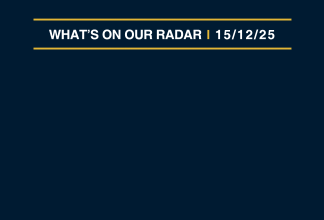What Does a Recession Mean for the Markets?
Written by The Inspired Investor Team
Published on July 22, 2022
minute read
Share:
If the past two years have taught Canadians anything, it's that markets are anything but predictable. Now, with the recent stock market downturn and ongoing economic pressures, recession fears are becoming a reality.
In a July 7 report, RBC economists predicted Canada is heading for a moderate recession in 2023 as inflation, labour shortages and rising interest rates drag on economic growth.
It's something Canadians have been fearing for a while. According to a survey by Nanos Research commissioned by the Globe and Mail earlier this year four in five Canadians reported being concerned or somewhat concerned about the possibility of a recession. And it makes sense. Many young professionals came of age during the 2008 recession, and have felt the sting of the March 2020 market plunge. It's not surprising that Canadians have adopted a more gloomy view.
What exactly does a recession mean? Most economists define recession as a period in which gross domestic product (GDP) shrinks for two consecutive quarters. In other words, economic output would have to decline for six months before a recession is officially declared.
Going by the above definition, Canada is not currently in a recession. The latest quarterly GDP figures showed that Canada's economy grew at an annual rate of 3.1 per cent in the first quarter, down from 6.6 per cent in the fourth quarter of last year. While growth came in below expectations, there was still growth. More recently, GDP in April showed a gain of 0.3 per cent from the previous month, although Statistics Canada indicated that preliminary figures for May were showing a 0.2 per cent decline. Final GDP figures for May are scheduled for release on July 29.
How have we gotten here? For starters, we've been through quite the economic rollercoaster over the past 26 months or so, and things are still rocky. Surging costs have hit households hard, fueling many Canadians' worry over the future of the economy. Inflation, now at a nearly 40-year high, is affecting households and businesses – and the Bank of Canada's response to tackling inflation by raising interest rates is making borrowing more expensive.
In the U.S., GDP shrank by 1.5% annualized in the first quarter of 2022 and is now predicted to have been flat in the second quarter of 2022, says Eric Lascelles, Chief Economist for RBC Global Asset Management, in his latest MacroMemo. “That means even a slight disappointment in the second quarter would yield two consecutive quarters of declining GDP – a rule-of-thumb for a recession," he says.
“The first quarter GDP decline was an artificial drop that happened due to a weird inventory pattern and a surge in imports, not because the economy was keeling over. Most of the economic data we're seeing for the second quarter doesn't seem consistent with a recession, whatever the ultimate GDP print. In other words, a recession didn't just happen – but it is at risk of happening over the next 18 months," he adds.
What does it mean for equity markets?
When it comes to equity-market behaviour, RBC Wealth Management says “there is no single template — there is no “typical" recession, and there isn't much that can be considered typical market behavior associated with them."
In a recent report, RBC Wealth Management provided the following insights:
- Market performance can vary widely during recessions. While the S&P 500's average decline was 32 per cent surrounding the previous 13 recessions, magnitudes ranged from just 15 percent to 57 per cent.
- Historically, there has not been a strong correlation between the duration of recessions and S&P 500 declines. One notably long recession was accompanied by a smaller-than-average market decline (1981); some recessions of roughly average length featured well-below-average declines (1948, 1953, 1960); and on other occasions, recessions of below-average length ushered in big market declines (2001, 2020).
- Likewise, the depth of recessions (in terms of peak-to-trough GDP losses) has not consistently correlated with the magnitude of market declines.
- There is one very visible pattern in the historical data, however. In all but one of the previous recessions since 1937, the equity market troughed before the recession officially ended. This reinforces a point we make repeatedly: Attempting to time the market bottom is usually a fruitless exercise. The market typically bottoms well before the economic clouds part, often when headlines and investor sentiment are still rather negative.
- Corporate profit declines and valuation trends during recession periods have often played roles in shaping market performance. These are important aspects of the economic cycle that we plan to address in coming weeks as we approach corporate earnings season.
The complete report is available at RBCWealthManagement.com under the title "How are recession risks impacting equities?"
For ongoing updates, check out “Market Commentary" under the Research tab on the RBC Direct Investing site.
RBC Direct Investing Inc., RBC Dominion Securities Inc., RBC Global Asset Management Inc. and Royal Bank of Canada are separate corporate entities which are affiliated. RBC Direct Investing Inc. is a wholly owned subsidiary of Royal Bank of Canada. RBC Direct Investing Inc. and RBC Dominion Securities Inc. are Members of the Investment Industry Regulatory Organization of Canada and the Canadian Investor Protection Fund. Royal Bank of Canada and certain of its issuers are related to RBC Direct Investing Inc. RBC Direct Investing Inc. does not provide investment advice or recommendations regarding the purchase or sale of any securities. Investors are responsible for their own investment decisions. RBC Direct Investing is a business name used by RBC Direct Investing Inc. ® / ™ Trademark(s) of Royal Bank of Canada. RBC and Royal Bank are registered trademarks of Royal Bank of Canada. Used under license.
© Royal Bank of Canada 2022.
Any information, opinions or views provided in this document, including hyperlinks to the RBC Direct Investing Inc. website or the websites of its affiliates or third parties, are for your general information only, and are not intended to provide legal, investment, financial, accounting, tax or other professional advice. While information presented is believed to be factual and current, its accuracy is not guaranteed and it should not be regarded as a complete analysis of the subjects discussed. All expressions of opinion reflect the judgment of the author(s) as of the date of publication and are subject to change. No endorsement of any third parties or their advice, opinions, information, products or services is expressly given or implied by RBC Direct Investing Inc. or its affiliates. You should consult with your advisor before taking any action based upon the information contained in this document.
Furthermore, the products, services and securities referred to in this publication are only available in Canada and other jurisdictions where they may be legally offered for sale. If you are not currently a resident of Canada, you should not access the information available on the RBC Direct Investing Inc. website.
Explore More

7 Ways to Get Ahead Financially in 2026
How you might invigorate your finances and put your money to work more intentionally this year
minute read

Economic Outlook: Uncertainty is Here to Stay, So What's Next?
Takeaways from the Economic Club of Canada’s Annual Event
minute read

3 things: Week of December 15
What the Inspired Investor team is watching this week
minute read
Inspired Investor brings you personal stories, timely information and expert insights to empower your investment decisions. Visit About Us to find out more.







